
In an attempt to get a view of management consultancy ten years from now, on 4 November 2022 future leaders from around the world gathered for special online discussions as part of the ICMCI Future of Management Consultancy initiative.
Jana Buchanan moderated the session with panellists from the Americas drawing attention to some of the trends at interplay in shaping the future of management consulting.
The gig economy and the way we deliver work
Jana Buchanan: What does 2032 look like in terms of the market and the way deliver services? What are the success stories rooted in investments and in young professionals today? Picking up themes from a Canadian review, the short-term trends revolve around technologies, the emergency of the gig economy, and increasing engagements through implementation and operations of new ways of working. The long-term trends include climate change and technology change. I have also added partnerships.
The gig economy and the way we deliver work
Luiz Viana: The gig economy is developed for the new generations because everything is done quickly. In management consulting, there is a trend for young people to become independent consultants. I believe that a solid base of learning, regulations and methodologies is the right foundation for the development of a good consultant. It requires time and experience to become a good consultant.
Jana Buchanan: Rooting our profession in proper methodologies, training, education and expertise is important in terms of building credibility for the profession as a whole.
Kaitlin Pianosi: How we go to market is going to change. International organisations like CMC Global are going to play an important role because of networking. Geographic barriers are going to come down even more so than they have. This will allow small firms or independents to network globally, to deliver services in markets they have never had the opportunity to work in, to compete better. It is a global-local perspective where someone internationally pairs with someone locally.
Jana Buchanan: The role of ICMCI and CMC Canada and other global organisations is coming together with a unified voice to shape the future of consulting.
Damilola Odeleye: A lot of big firms especially those in the technology sector have fully embraced the gig economy and are enjoying the benefits. However, some industries are not there yet. In the financial services sector, there are stringent rules and requirements so it can be difficult to fully embrace the gig economy. This is why I believe many financial services companies have internal consultants, be it strategy consultants or lean consultants, even technology consultants; although in certain instances they hire external consultants to add to projects. This is not so to say that all financial services companies out there do not hire gig workers, it’s just not as common as other big firms in less regulated industries. In the future, the gig economy is going to put a lot of pressure on big firms in the consulting industry. Heavy price tags may become a thing of the past as more and more specialized consultants join the gig economy. Big consulting firms will need to pay more attention to pricing strategy and employee retention. ICMCI and CMC organisations can start preparing consultants for the future through training, mentorship, coaching opportunities where young professionals can learn from more experienced professionals.
Jana Buchanan: Large companies are under pressure to respond to the new ways of working. Young professionals have a globalised view of the working world and their values. Large firms begin to respond and support mental health; diversity, equity and inclusion; the ability to show up for work as your authentic self.
Kaitlin Pianosi: In 2032, for consultants it’s going to be “design your life”. Work-life balance is going to look different for every single person because they are doing what they want to do when they want to do it. I hope to see respect for different lives.
Embedded sustainability and construction
Adelwyn Holder: As management consultants, we need to think about the role buildings play in how we design organisations, how we manage people and how we deliver products and services. We need to keep in mind that we spend 90% of our time indoors. There are four essential drivers for the next decade: 1) Emissions from buildings; 2) Acceleration of the shift towards flexible working, remote working, alternate and innovative forms of working which is done in response to keep our teams and people, and everyone, healthy and safe; 3) Business leaders need to think about sustaining hybrid working and to understand that it is not only about how we work but also where we work; 4) UN SDGs, legislation, regulations, from the EU for example. Green buildings are at the intersection of these drivers.
As management consultants, we need to think about these trends and the impact they have on strategy, operation finance and how products are delivered. Data and technologies are used in decision making, in investing, improving efficiencies, security, access, better collaboration between team members. This affects every part of an organisation and its people.
The services we provide
Jana Buchanan: I see a deeper desire for advisory not just at the first stage, during design, but working end-to-end with clients to support implementation. Clients are seeing the urgency for changes to happen and looking outside their organisations to say “how do we address this”. The magnitude of change requires end-to-end support.
Kaitlin Pianosi: There will be more phases. When we think of the end-to-end project lifecycle, the bookends – project initiation and project closing – we are going to end up with two of those – you open and close with your team/partner/sub-consulting team you are working with, how you strategise before you actually kick off the project. So it is two kick offs – one with the partners, one with the clients. In a similar way, two closings – one with the partners, one with the client.
Jana Buchanan: You deliver a future state. We are seeing a move in terms of the close of engagements after the transition to the future state has taken place. Instead of a six-month engagement, we end up with a three-year engagement, walking the journey in partnership with the client.
Kaitlin Pianosi: That makes relationships all the more important. As you close each phase, you get to the next one, it is not going to somebody else. And this is where the local-global relationships will be extremely important.
Luiz Viana: Start-ups have fantastic ideas. But many of them do not have experience and support of consulting to guide them through beginning and best management practice. The partnership with experienced consultants is very good for growth and start-ups, working together long-term.
Jana Buchanan: For me, “partnerships” is a really big word for 2032. It means partnerships with public and private institutions which is critical to realising some of the best possible solutions, the most innovative ideas and, most importantly, ensuring the prosperity and support of populations across the globe and in the Americas. Those partnerships will allow for revenue based on benefits realised in that partnership which is different from the way we structure our engagements today.
Kaitlin Pianosi: Shared values go deeper than just the goals of an engagement. The goal is what you want, the values are how you do it. That is where the Code of Ethics comes into play. It will affect partnerships in a way that it will make more sameness and not more diversity, because you will want to work with same values.
Adelwyn Holder: There are areas in which public-private partnerships have proven to be a challenge. In the construction industry, it’s more successful, largely due to the specialised nature of construction and design. Starting with the shared values, it is a way for public and private entities to establish relationships, key principles, key behaviours which engender a certain level of economic cooperation and progress for a given sector or aspect of society. Healthcare is a significant one. Governments are turning more to the private sector to advance their agenda for key societal services like health. Construction, hospital and schools but not only, as a means of sharing investment, sharing responsibilities, risks, rewards. There are a number of benefits to those relationships. As management consultants, we need to take them into account because they are going to become more common. The government can rely on experience, on the innovation they are leveraging for the benefit of populations, cities, communities. They can also ensure that end users benefit from greater economies of scales, reduced overheads, reduced losses through inefficiency and greater introduction of innovation and design technologies.
I see a number of challenges to the implementation of public-private partnerships. I see a lot of potential for management consulting in those areas. How do we navigate and establish those partnerships? There are certain legal, ethical and procedural challenges that need to be navigated and properly worked through. As management consultants, we can partner with governments and private entities navigating those challenges. We also have challenges with financing. How do we navigate these financial arrangements which tend to be very complex and deeply integrated in the work of the organisations which are sharing risks? Consultants with experience in financial services can help both parties navigate those challenges as well. We do have a lot of experience and a wealth of knowledge within our areas to help public and private entities navigate some of these shortcomings and questions and advise them properly in terms of how they go about entering into these partnerships, providing the technical and specialised services that are required. One of the key areas I see potential for us getting involved is monitoring and evaluating these projects. How we publicly report on the success of these initiatives? One of the key aspects is that public funds are involved and we need to put in place systems which property report on the use of these funds.
Climate change and disruptors
Jana Buchanan: Another big topic is climate change, a disruptor in the future: what does it mean in terms of response and partnerships?
Luiz Viana: I believe in the process of continuous education of consultants on ESGs and knowledge about UN SDGs where the consulting process leads to planetary environmental awareness aligned with the vision of sustainable development. It will provide a new perspective because people are looking for a new world, a green world of clean energy. We need to have a perspective on the future of the world, not the future of consulting but of the world, as these walk together.
Jana Buchanan: Technology will enable some of this to happen. In the Canadian context, we see digital transformation in the public sector. And again partnerships come into play. Digital enablement will allow for continued quality of services delivered to populations. To implement and pursue some of these technologies in the public sector will take strong partnerships with management consultants and with firms to ensure that we implement technologies with purpose, that we implement them keeping in mind the communities and populations they impact. In healthcare, technology allows us to have connected systems, allowing patients to take control of their health in a meaningful way. When we think of a fully connected digitally-enabled system in healthcare, we can imagine the impacts on patient health, on research on disease and sharing of knowledge and our ability to be pro-active with the health of our community.
Damilola Odeleye: The impact of tech innovation and disruption cannot be overemphasised. Technology is providing more opportunities to improve client experience, get competitive advantage and gain a market share. Brand loyalty is gradually diminishing because more clients are looking for instant gratification and there are a lot of options out there to choose from. Any business which wishes to stay competitive in today’s market place must meet the clients where and when they need something. This can only be achieved by putting in place smart processes enabled by technology. By 2032, I envision maturity in things like robotic automation, artificial intelligence and the Internet of Things. We have not reaped all the benefit of technology yet. By 2032, we will see more innovative ground-breaking solutions out there that would actually serve the needs of the client better.
Types of learning
Damilola Odeleye: I try to stay engaged, to stay informed about what is going on out there because the truth is, depending on what you are working on, you may not necessarily be able to apply all the technology available. However, there is no knowledge that is lost. As young professionals, we need to be intentional about what we are learning. In the years to come, technology is going to drive the way we work and it is going to change it. As consultants, we have to read and learn, even if it is not in our sector.
Three words to describe management consulting in 2032
Jana Buchanan: Partnership, global, challenging.
Damilola Odeleye: Daring, fast-paced, value for cost.
Luiz Viana: Sustainable, education, compassion – understanding another person’s emotional state, understanding how a human being works and constructs the world is very important. Companies do not exist without people.
Adelwyn Holder: Sustainable, integrated, equalise – we are going to see a levelling out of highs and lows across society, across the world, again stemming from some of the challenges that we will face in the future and, of course, technology is one of the key bridges to carry us to that place of equalisation.
Kaitlin Pianosi: Local-global, hopeful, partnership.
Lorne Boyle, FCMC: Virtual, fractured, values. From the ethics perspective, we are seeing the CMC differentiator.
Luiz Viana: We, as the consulting profession, need to start learning with the Code of Ethics. Soft skills are necessary for everyone. Technical competence, the hard skills, are now changing. We see new ways of working with technology. So we need to learn new technologies. The possibility for international networking and the possibility to become a certified consultant as part of the ICMCI network and participation in events are a great professional opportunity.
Olivia Chase: Global partnerships, technology and cultural sensitivity.
Macherie Grant-Knight: Accountability, adaptivity and greener.
Nick Bush: Disrupted, virtual and automated.
Meet the panellists:
Adelwyn Holder is a Certified Management Consultant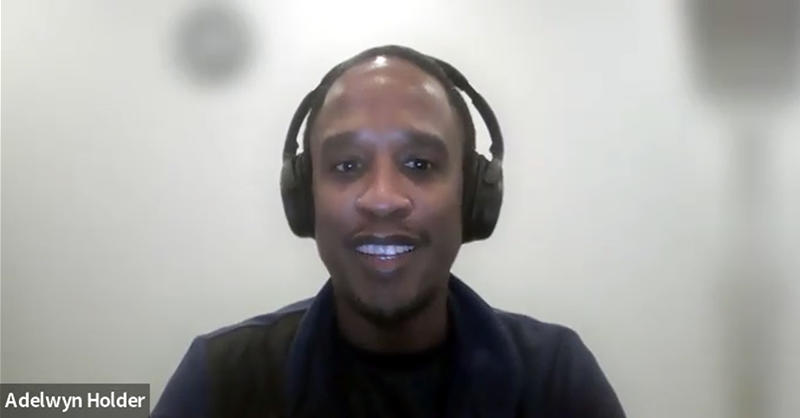 (CMC®) and Project Manager with an extensive experience in engineering, design, construction, business, and project management gained through his leadership and participation in initiatives for both private and public sector clients throughout Trinidad and Tobago, the Caribbean, and North America.
(CMC®) and Project Manager with an extensive experience in engineering, design, construction, business, and project management gained through his leadership and participation in initiatives for both private and public sector clients throughout Trinidad and Tobago, the Caribbean, and North America.
Adelwyn is the Founder and Managing Director of Ikigai Consulting, a consultancy focused on delivering value through project, business, and construction management services. He provides sound and independent technical advice, critical and timely data-driven insights which enhance and produce greater clarity across every phase of project activities.
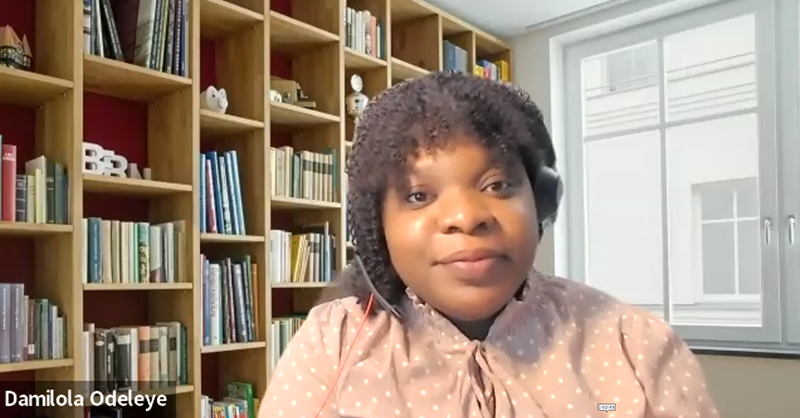
Damilola Odeleye, MBET, CBAP, is a Consultant in the Individual Operations Best Practice division of Sun Life, one of the leading financial services companies in Canada. She leads and consults on various digital, innovation and process improvement initiatives that help to achieve strategic objectives. These consulting engagements are focused on leveraging technology to gain competitive advantage so as to deliver greater value to clients; without compromising on risk, cost effectiveness and compliance with regulations. Over the years, Damilola has garnered experience working in fast-paced dynamic business environments and is currently in pursuit of the Canadian CMC designation.
Based in Ontario, Damilola currently sits on the CMC-Canada board as a Director-at-large (Young Professional) and volunteers as a Growth & Retention Strategist with CMC-Canada South Western Ontario chapter. She is also a Canadian representative member of the ICMCI Future Leaders Forum.
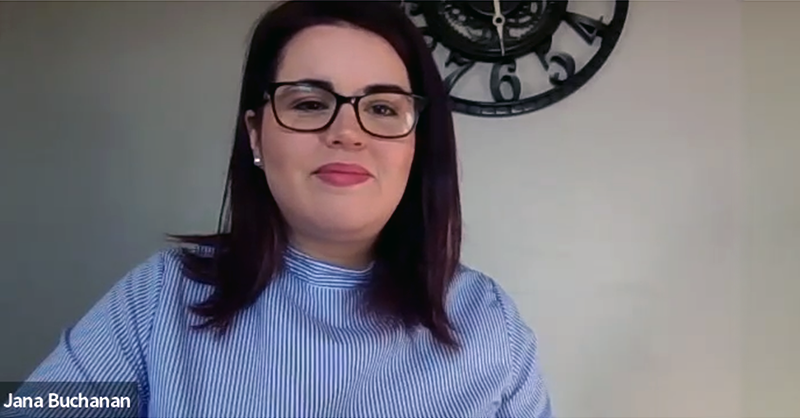
Jana Buchanan, MBA, PMP, is a Senior Consultant in Deloitte Canada’s Operations Transformation practice with a focus on Public Sector Transformation. She has worked with clients in government and healthcare providing project management services and advisory on initiatives ranging from provincial infrastructure development to provincial healthcare program design and implementation planning. She is currently in pursuit of the Canadian CMC designation.
Based in Nova Scotia, she serves on the Certified Management Consultant (CMC) Canada - Atlantic Institute Board, Regional Representative for CMC-Canada National Growth Committee, and Canadian representative member of the ICMCI Future Leaders Forum.
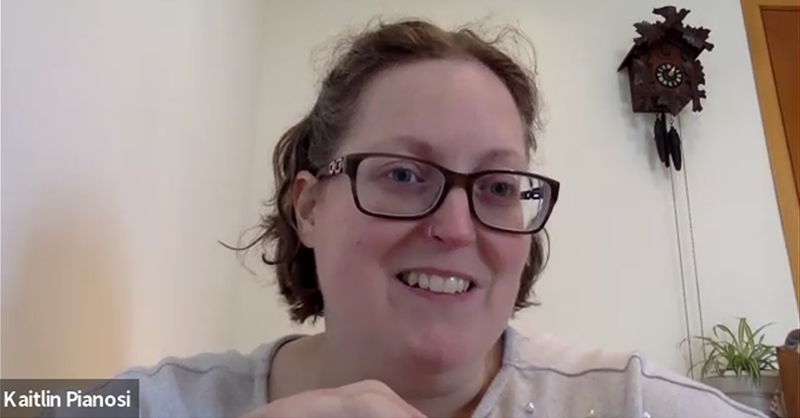
Kaitlin Pianosi, CMC®, MBA, CCA is a Senior Consultant at Pivot Consulting, a small firm focused on the public sector in Atlantic Canada. Her clients have included provincial and municipal governments, healthcare, non-profits and agencies. Her work runs the gamut of traditional management consulting, including strategic planning, implementation, project management, research and analysis, business case development and review, and change management.
Kaitlin is also President of the Institute of Certified Management Consultants of Atlantic Canada.
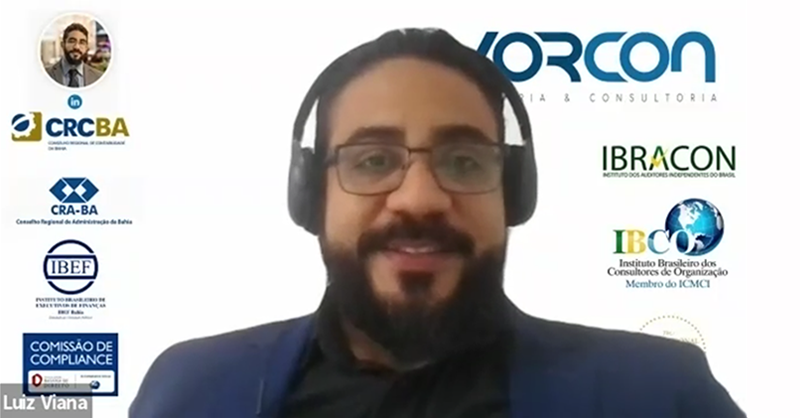
Luiz Carlos Lopes Viana is Managing Partner of Finance and Accounting at VISOVI Group in Angola. He has more than 10 years of experience in accounting, auditing and consulting. He worked for almost four years in a Big 4 company and for three years as Financial Manager of a large group of Angolan companies. He has experience in diverse sectors, including Mining, Real Estate, Chemicals, IT Solutions, Oil & Gas, Agribusiness. His expertise covers startup development and mentoring.
Luiz Viana has served as Director of Professional Development at IBRACON (9th Regional Bahia) - Institute of Independent Auditors of Brazil; President of IBCO, the Brazilian Institute of Organizational Consultants (2021 x 2022); Vice-President of IBEF, the Brazilian Institute of Finance Executive of Bahia; Councillor and Member of the Inspection Chamber of the CRC-BA, and at other professional institutions.
About the Future of Management Consultancy
Combining a series of events, discussions and publications, the ICMCI Future of Management Consultancy initiative strives to promote the global conversation about the future of the profession towards developing a common vision to help and inspire consultants all over the world.
Designed as an “open source” and inclusive platform, the Future of Management Consultancy is an opportunity to seek answers to pressing questions and to encourage interactive communication and joint idea generation.






